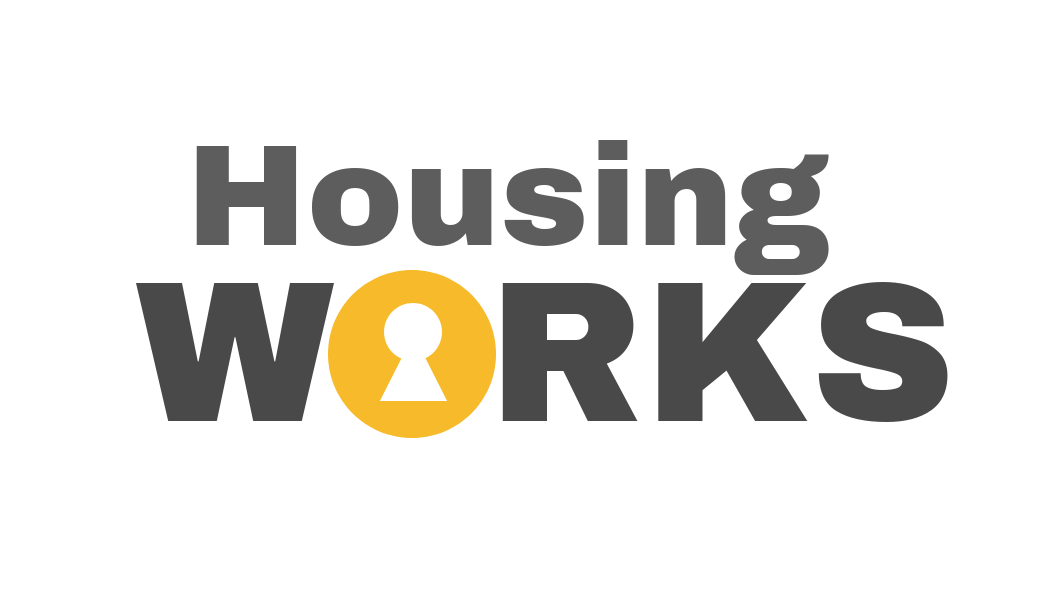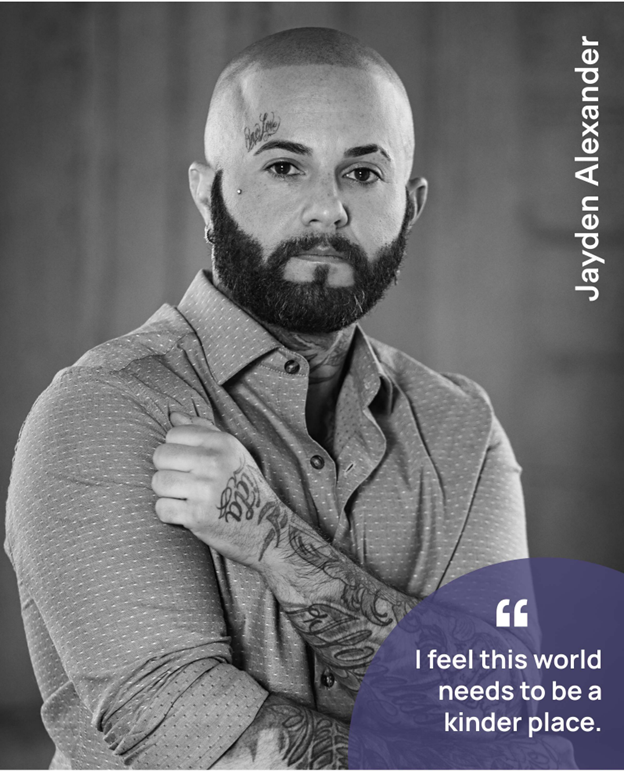Advancing Health Equity through Skilled Peer Workers
Two of our staff members, Jayden Alexander and Robert Diaz, were featured in a report from CSH titled Advancing Health Equity through Skilled Peer Workers. Jayden, Robert, and the other two participants, Thomas "TP' Hearn and Carmen Miller, are all alumni from Housing Works' HEAL program. For this project, the four of them were a part of a Peer Workforce focus group and symposium to help gain information for this report.
We've included some excerpts from the report below, including information about CSH, and Jayden and Robert's stories of their lived expertise.
About CSH
Corporation for Supportive Housing (CSH) has been the national leader in supportive housing for over 25 years. We have worked in 47 states to help create stable, permanent homes for individuals and families. This housing has transformed the lives of over 200,000 people who once lived- on our streets or in institutions in abject poverty. A nonprofit community development financial institution or CDFI, CSH has earned a reputation as a highly effective, financially stable organization with strong partnerships across government, community organizations, foundations, and financial institutions. Our loans and grants totaling over $600 MM have been instrumental in developing supportive housing in every corner of the country. Through our resources and knowledge, CSH is advancing innovative solutions that use housing as a platform for services to improve lives, maximize public resources, build healthy communities, and break the cycle of intergenerational poverty.
Visit csh.org to learn more.
Jayden Alexander
Jayden Alexander's road to gain housing, transportation, and employment has been a turbulent yet inspirational journey. As a child, Jayden began suffering from depression at the age of 10. He would come to discover that his mental health challenges also included ADHD and bipolar disorder. In addition to having parents who did not understand what he was going through, he also experienced incessant bullying and abuse at the hands of classmates. This turmoil would drive him to attempt suicide for the first time at 14 years old, but despite it all, he survived.
Jayden knew he was different at a young age, not only because of his learning disabilities, but also because of his gender identity and orientation. At 18, he could no longer stay at his parents' house. After a year-long stay at Covenant House in Florida, Jayden was desperate to leave and start over in a different state. He was lured to San Francisco, supposedly to sell skin products but soon would become the victim of a predator who punched Jayden in the face for not selling his products fast enough. After an ominous warning from a housemate, Jayden escaped, but this would mark the beginning of years living on the streets and falling prey to all the harm that homelessness brings with it- including sexual assault, battery, and starvation.
Without success, Jayden tried to reach out to his family. Hopelessness took over. Finally, one day Jayden attempted to take his life by walking into traffic. Once again, though, he survived. Soon thereafter, Jayden was connected to a therapeutic group home. He received counseling and linkages to public assistance. After a year, he transferred to independent housing for transitional age youth. Still, although he had stable housing, it was not until the facility embedded its case management services onsite that Jayden felt truly supported, finally able to gain the guidance he needed to be successful on his own.
One day, Jayden's caseworker suggested he participate in the HEAL program and receive training that would place him on the path to employment. During his training and internship as a caseworker on Skid Row, Jayden discovered his true capabilities. "HEAL was a steppingstone, and I was able to help people because I experienced it. I'm not what people say I am. If I put my mind to something, I can do it." Jayden truly beat the odds against him. As someone who grew up in an environment where he was constantly called "stupid and dumb," the experience of becoming a guide for others who faced similar challenges was transformative.
In this capacity, Jayden gained gratification from "doing something good" for himself and someone else as well. Past clients would continue to reach out to him because of how he made them feel and his ability to raise their spirits, to make them laugh. Being a source of happiness for others made him realize that yes- he is indeed "a good person, intelligent and more than what people say I'm worth." When asked about the unique skills someone with lived experience possesses, he indicated the relatability of peer specialists and how individuals being served can feel open to talk at last, not silenced by shame about their circumstances. "I don't have to be told how to confront someone because I know how I want to be approached when I'm on the street. Intuition becomes a superpower, and you can't connect with a superficial purpose." He made that important distinction- the one between an authentic and caring individual whose purpose is genuine, and the person who has no real or grounded connection to those challenges.
“Intuition becomes a superpower, and you can’t connect with a superficial purpose.”
Understanding the unique skill set he brings to the table, Jayden says it is painful to feel you are looked down upon because you do not have a degree, or because it takes you longer to complete paperwork. Jayden indicated that supervisors need a clearer understanding at times when it is necessary for him to ask follow-up questions. He urgently wants to succeed, but supervisor support-their encouragement and comprehension- is essential if peer specialists are going to thrive.
Jayden is currently continuing his education and taking coursework at Antioch University Los Angeles. In the future, he also wants to earn certification as an x-ray technician. Through his work in fields that offer to support to others, Jayden hopes to provide himself with the financial stability he needs to no longer depend on public housing aid. Today, he is hard at work becoming a self-sustaining member of his community, and also a person who is helping others improve their lives.
Jayden's story of courage, survival, and compassionate work with others will undoubtedly help in making his ultimate wish come true. "I feel this world needs to be a kinder place," he says, "because you just don't know what someone else is going through."
Robert Diaz
Robert Diaz has traveled a long, difficult, and dangerous road to get to the point in his life where he finds himself today. His words are thoughtful and honest as he describes the many challenges he has managed to overcome, including a violent gang attack that left him fighting for his life after being stabbed 16 times. Robert is a true survivor.
As a baby, Robert was diagnosed with spinal meningitis. Growing up, he was plagued with schoolyard bullying and taunts from classmates because he suffered grand mal seizures; and therefore, he could not participate in the typical sports and activities that most young boys were enjoying. This trouble in his life exacted a cruel price in the form of substance addiction that began early, and he dropped out of school in the fifth grade.
Addiction was not a battle that Robert alone faced in his life. His mother also suffered from addiction and struggled with her mental health. Robert recounts a fateful day while he was working in the Victory Outreach program and saw his mother on the street, picking food out of a trash can. He spoke with his mother and tried to help her. She refused Robert's offer, indicating that she wanted to continue living the life she was living. Although Robert felt helpless, he wanted to find a way to do more. He told his mother he would see her in the coming week. Unfortunately, Robert would discover soon after that his mother committed suicide on her birthday. Left with inconsolable grief and guilt over her tragic death, Robert still struggles to find peace. "I felt maybe I could have done more that day when I saw her. Maybe I could have somehow prevented it."
Robert's addiction cost him his position at Homeboy Industries, and he subsequently made several attempts to achieve sobriety through rehabilitation. He wanted to prove to his father and family that he could succeed. When he presented his father with a copy of his GED, his father cried tears of joy. As someone who worked in mental health, Robert's father would always know when his son was on drugs. Robert did not understand how his father detected he was "high" until he continued his education with a focus on psychology and learned how certain behaviors becomes evident in addiction. Maintaining a 3.2-grade point average during college, Robert will receive an associate degree in June 2022 and wants to continue his education so he can become a counselor.
Robert's participation in the HEAL peer specialist training program has also enriched his life. He related to the content of the program's curriculum and appreciated the new knowledge he gained. One exercise, in particular, caused Robert to reflect on his family and his mother. On four pieces of paper, the class was instructed to write the names of four people they cared about, fold the the pages, randomly throwing three in the trash and keeping one. The one name that remained with Robert was his estranged sister who he had not spoken to because she had lost their mother's ashes. The exercise allowed Robert to engage in self-reflection about the loss of something so invaluable as his mother's remains while also considering the value of his family relationships.
Robert has continued to work in various capacities as a peer professional and takes pride in what he is able to bring to the workforce. He noted that his lived experience of being addicted to drugs makes him relatable to the people he serves and makes it easier for them to "open up" to him. "They feel more comfortable because I understand what they go through." Robert's lived experience also has helped him de-escalate situations with individuals who are being confrontational while receiving services. He remembers telling one individual being transported to court not to continue cursing a case manager. He wanted the irate man to redirect his verbal rant to him, which also helped defuse that person's rage. Robert feels confident in his ability to handle these types of situations effectively and is proud when he can protect others. He finds giving to others the time, care, and encouragement he received from his caseworkers when he was in rehab immensely satisfying.
As Robert continues in his role as a peer specialist, he does recognize that there needs to be improved workforce communication; that in his experience, sometimes supervisors can lack the ability to be straightforward when providing instruction to employees concerning tasks. Further, although he does see the need for improved compensation through higher wages, he is so gratified by the work that if his rent is paid and he has clothes on his back, he is "okay."
Robert's journey is inspirational, and he credits his religious faith for his success and survival. When he is not helping others through his work, Robert writes Christian inspirational poetry. One of his favorite poems was inspired by Revelations 3:20 in the Bible: "I heard you knocking but I wouldn't let you in because I wasn't ready to turn away from my sin until I heard, without you, my life would end. You took time to trade Your life for mine. The least I could do is give my life to you. So, when you come knocking again, I won't allow my sin to stop me from inviting you in."





